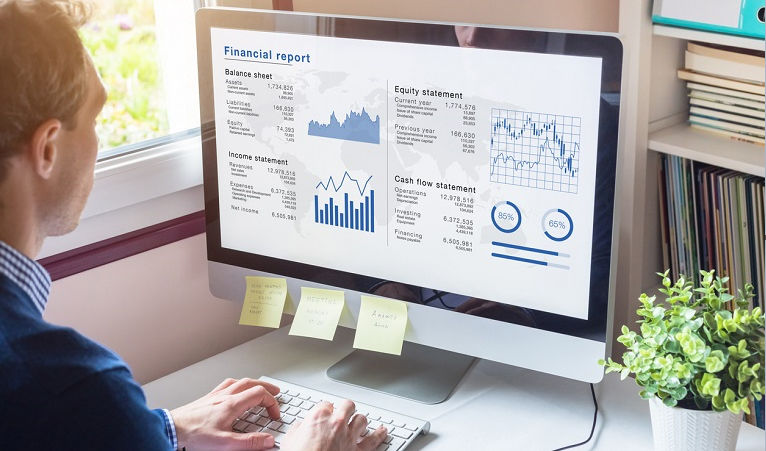Why your small business budget is your best friend

Posted: Thu 23rd Jul 2020
Paul Savage, principal at AIMS Accountants for Business, discusses the one thing that all successful businesses will have in common.
We all have our lightbulb moments. I had one at 2.27am on a Sunday morning. My two-week-old child was crying and I suddenly understood what everyone had meant when they said life would never be the same after I became a parent. I had another one sitting with John, my client, in front of his bank manager, talking through his borrowing requirements.
John had approached me a few months earlier because someone in the pub had told him he needed to have a budget in place. As John said "After all if you don't know where you are going, how do you know when you get there?" I always figured a budget was a good idea, so we put a budget in place and included a very simple report that each month compared actual to budget - not just for profit but for cash as well - and provided an explanation of the main differences.
That was the key. If all we had done was bind the budget into a nice little folder and leave it on the shelf it would have been worthless. Instead, we used it as the document that set out "this is what we think is going to happen" and compared it to what actually happened and John's understanding of his business became much more detailed and much closer to reality.
I have to admit, the first month was difficult. It is always difficult for people to open up about the things that haven't worked as expected, but the process very quickly got easier as everyone realised that this was about understanding the business not pointing the finger.
A few, short months later John was sitting in front of his bank manager, explaining the different areas of his business, why some were more profitable than others and what he was doing about it. The bank manager's response was simple, "How much do you need?". Right then was my lightbulb moment - the single most important reason for preparing a budget is that it enables you to talk knowledgeably about your business finances and satisfy every interested party that you understand your business. If you can do that the question is always simple - "how much do you need?".
When I talk about a budget with owner managed businesses the response I typically get is that their business is too small to need one. They have a point, but they are missing a trick!.
The simple reason is that everyone should be in a position to look forward and say "This is how I am going to make sure that my receipts will be greater than the payments that I have to make." But it is crucial that the format of the budget suits the business needs. I know a cleaning business in which the owner controls his cash by rigorously monitoring the hours that his staff work for each customer. His budget is a simple plan of hours worked, which the 'bean counters' convert into a cash forecast and, although he wouldn't call it a budget, he does have a clear plan against which he can assess whether his business is generating the cash he expected, which makes it a budget.
The key element of a budget is cash. A profit statement will typically smooth everything out over the year but we all know that payments are lumpy, some go out every month, some go out every quarter and some go out once a year. Plus, the cashflow has to include items like asset purchase which, by their nature, are one-off items. On top of all of that, you may have to schedule VAT payments if you are VAT registered. And we all know that selling something does not enable you to pay your suppliers, that only comes when your customer pays you, all of which means that you cannot simply assume that your cash balance will be the same as the profits.
I acknowledge that, at the moment, the uncertainty around Coronavirus makes it very difficult to budget. However, we can all have our best guess as to what we think is going to happen and then see what happens to the cash if that activity level increases or decreases by 10%/25%/50% or the return to 'normality' is delayed or brought forward. The benefit you will get from such an exercise is an understanding of how your business will survive in different circumstances.
One final thought. It's impossible to predict which businesses will recover the best but I can predict they will have one thing in common. They will all have a clear plan that shows how they are going to make sure that their cash receipts are greater than their cash payments. They will all have a budget.
Get business support right to your inbox
Subscribe to our newsletter to receive business tips, learn about new funding programmes, join upcoming events, take e-learning courses, and more.
Start your business journey today
Take the first step to successfully starting and growing your business.
Join for free
